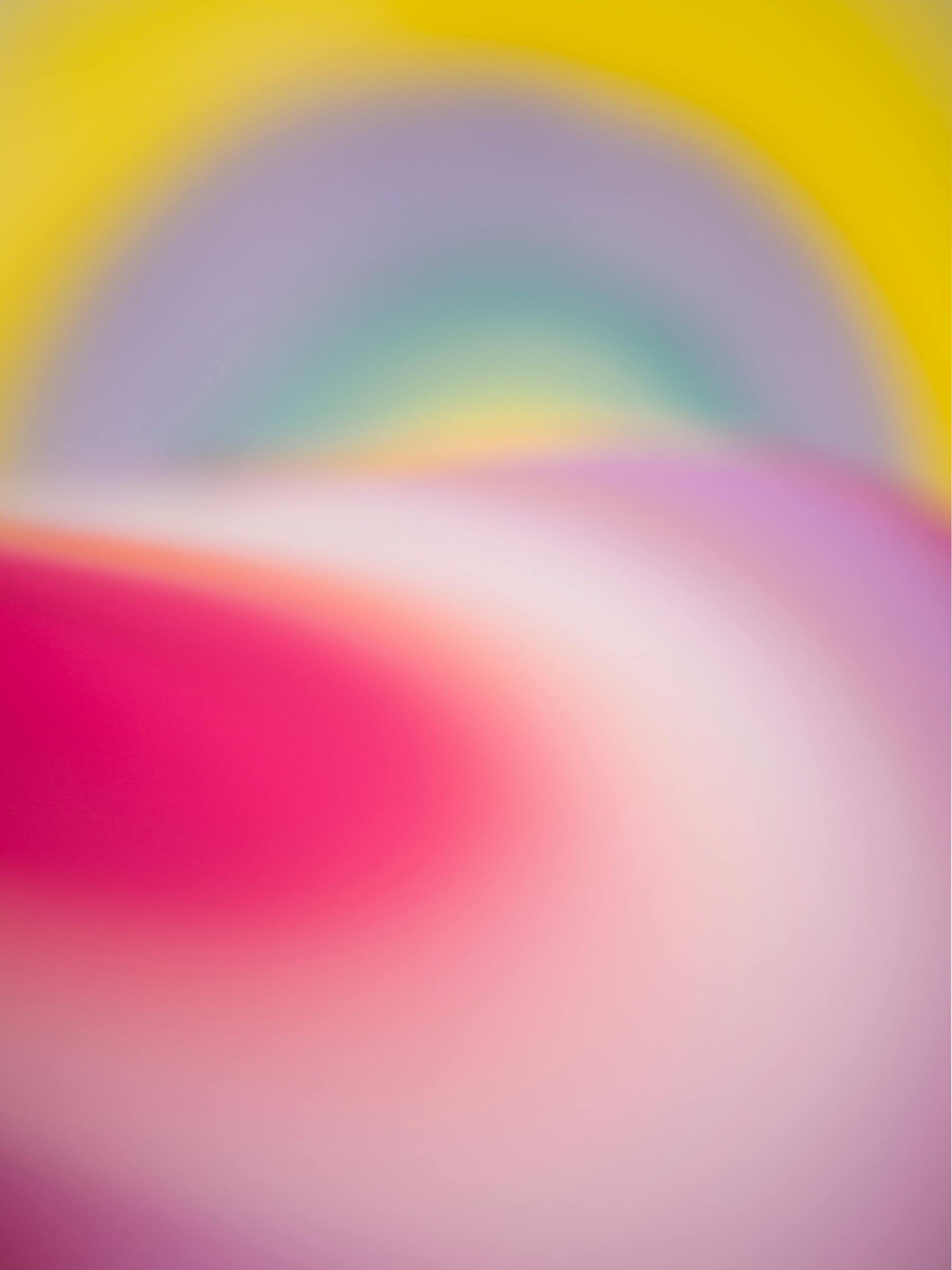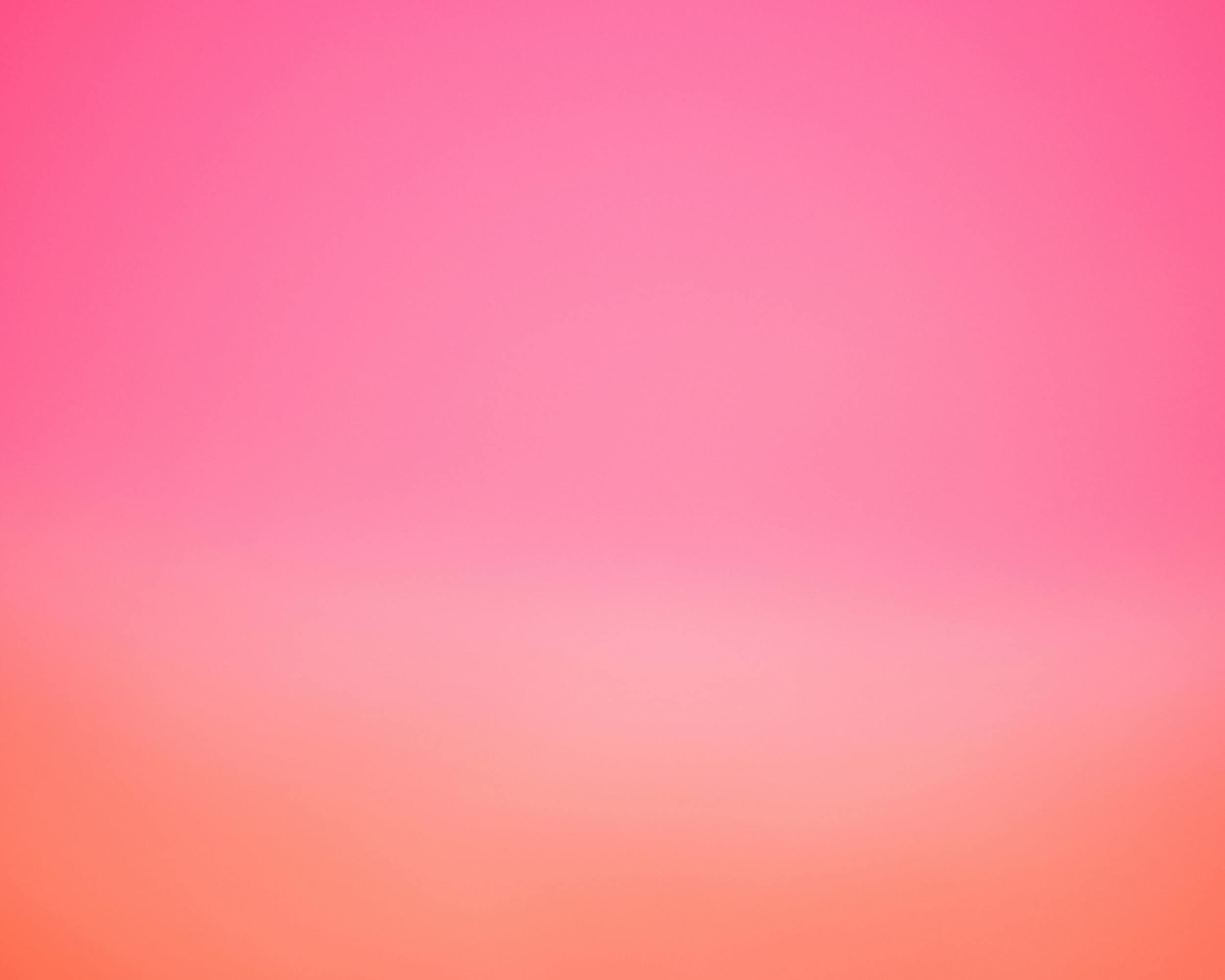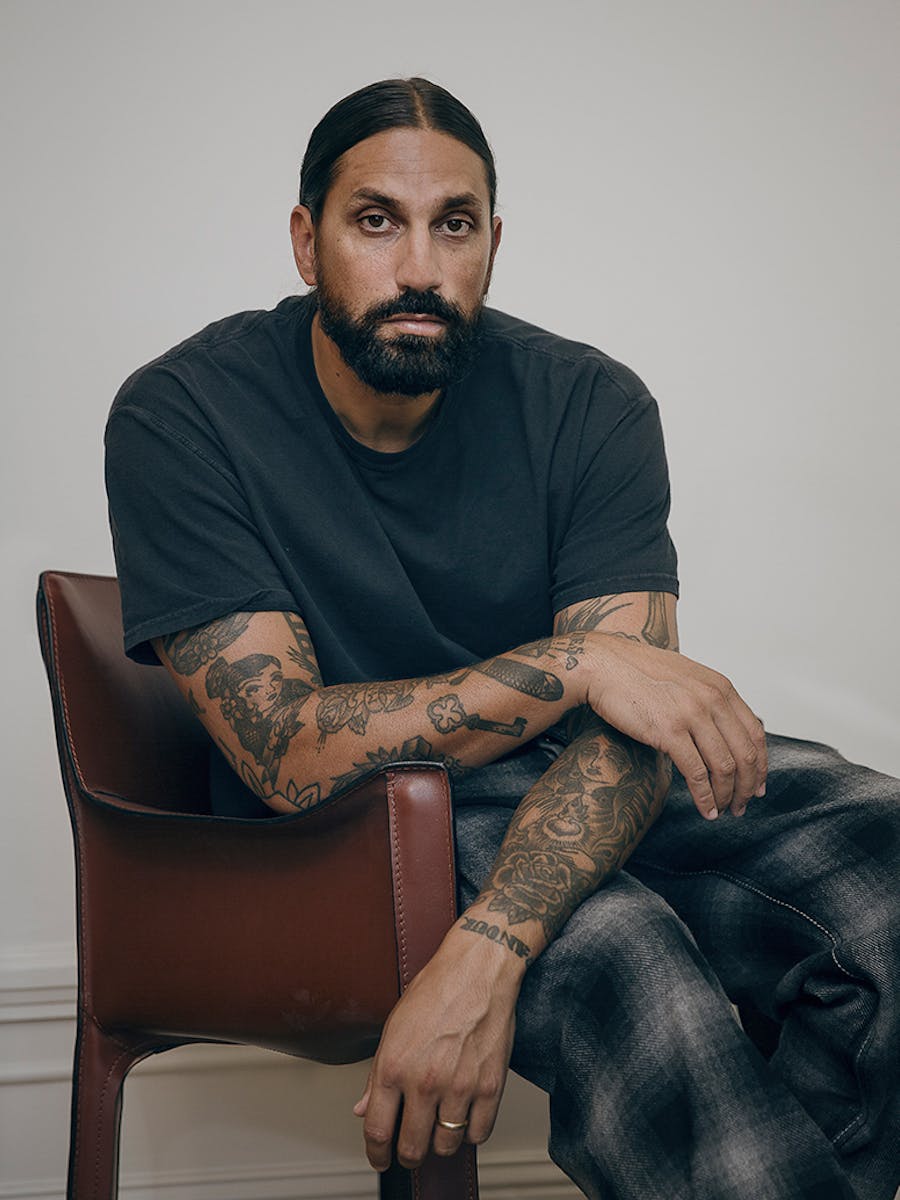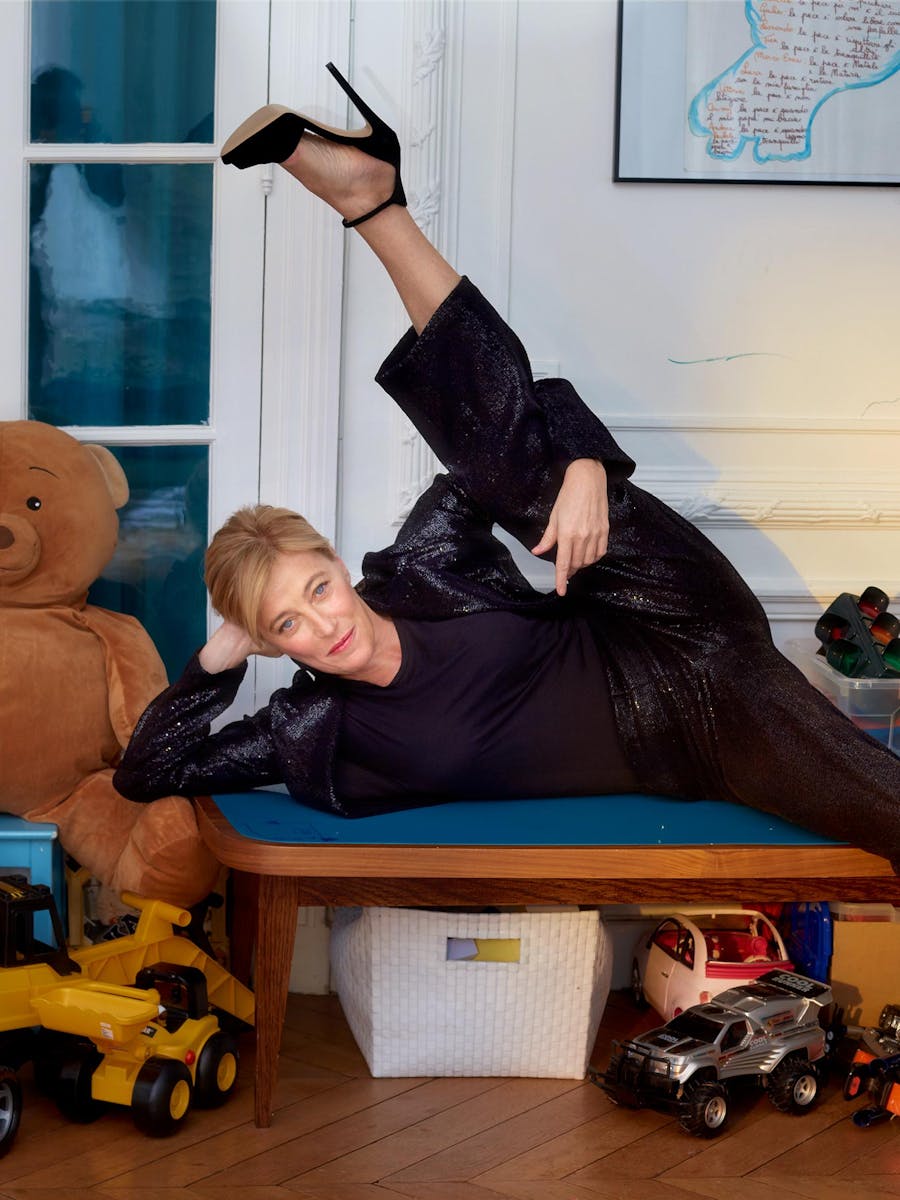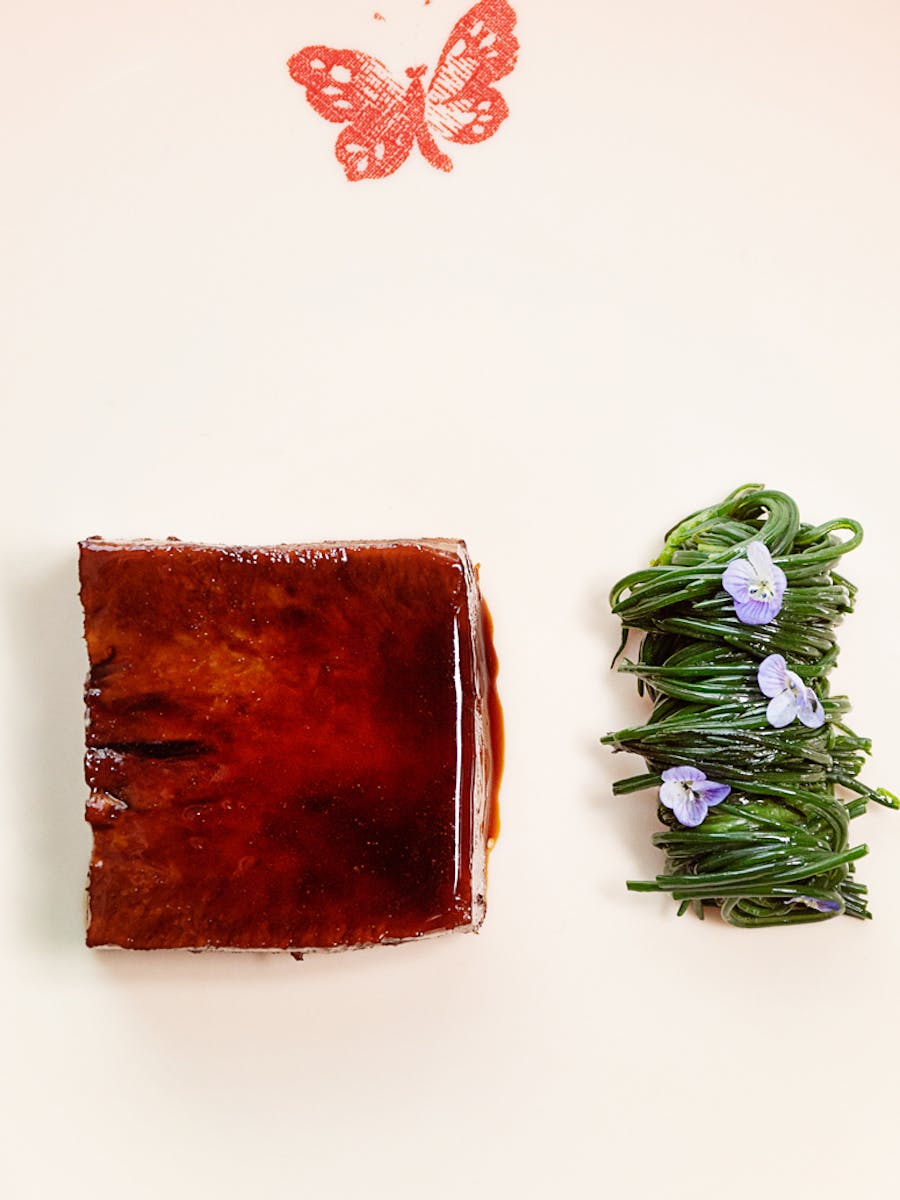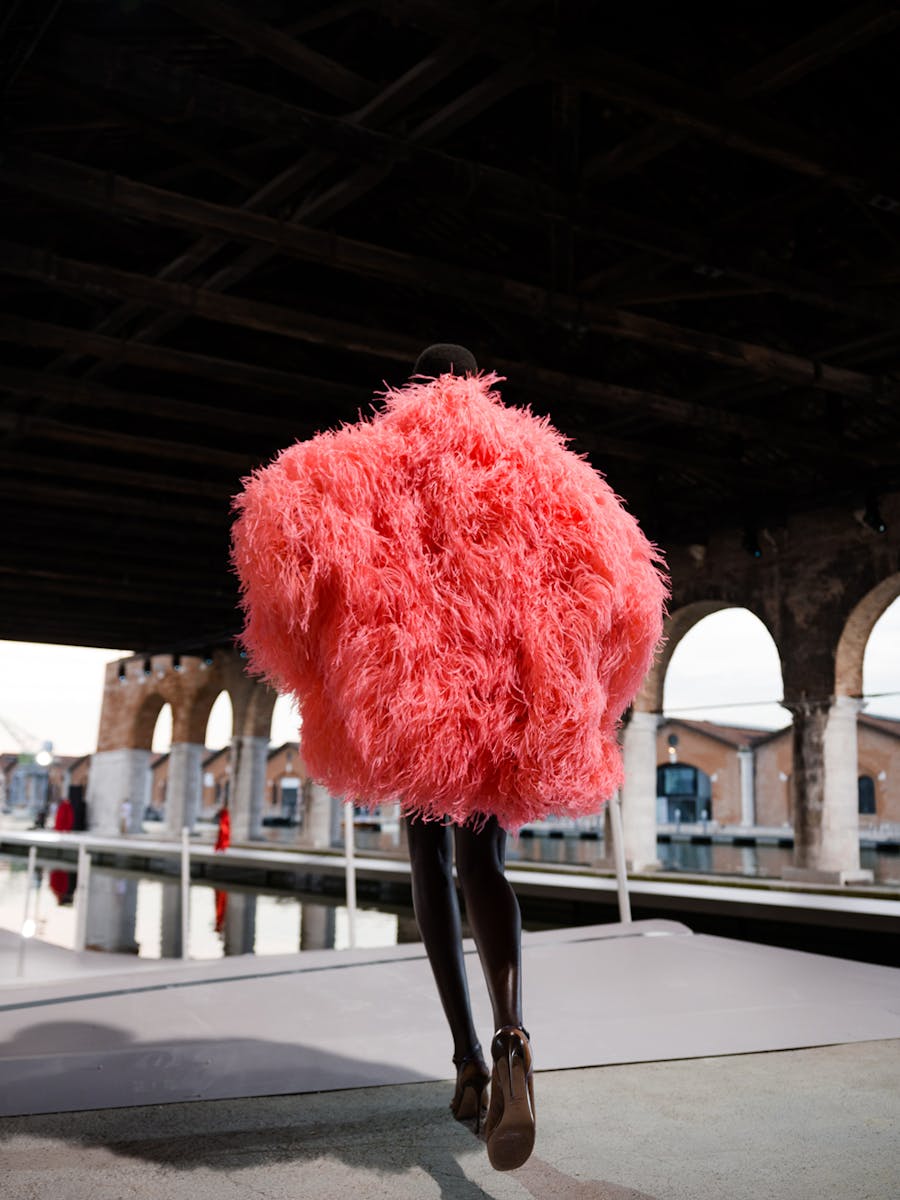From the Euphoria Issue
When he’s about to begin a new collection, Guillaume Henry always empties his office. No colours, images or clothing are allowed in. The creative director of Patou even turns around the books on his shelves, which seem to disappear in a haze of beige pages. Emptying out, all the better to create – and better to recover the euphoria he maintains over the course of his creative process, a relationship which is as intense as it is liberating.
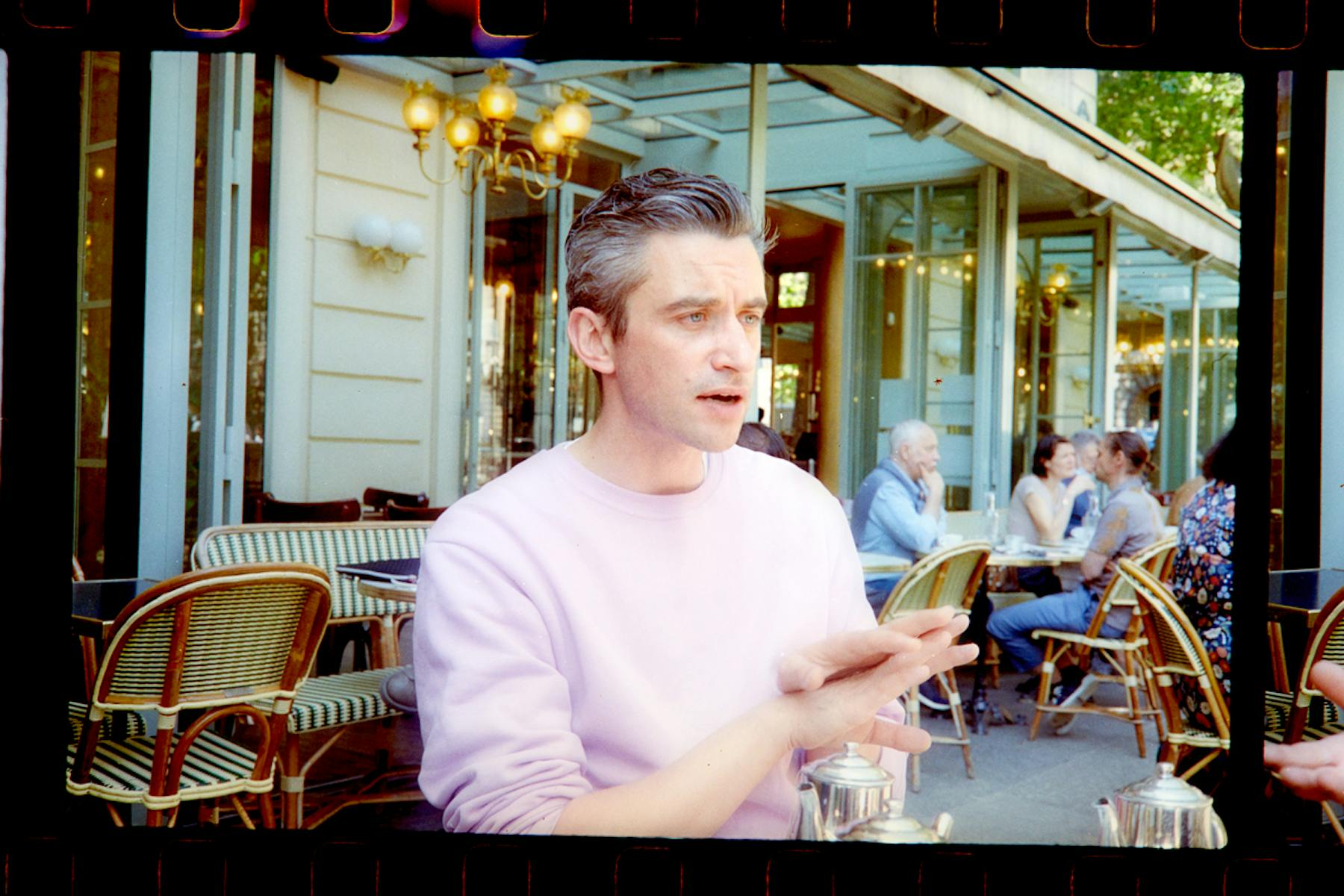
What does euphoria say to you, without thinking about it?
I think of it as a chemical solution, a kind of connection between the mind and the body. An overwhelming, wonderful, exciting kind of alchemy.
It’s a psychological state, necessarily linked to joy.
I have felt it often enough to say to myself that I have a great life.
What is your first memory of euphoria?
My first visit to Paris. Totally euphoric and exciting. I must have been eight years old and my brother was already a student here. My parents sent me to stay with him for a weekend. He gave me the tour. I come from the east of France, from a little village – I had never known anonymity. I was very used to being bored and what I like in Paris is the absolute impossibility of ever being bored. My brother was living right by Pigalle. Nothing could have been further from my daily life as a child in the countryside. I was struck by the contrasts produced by the noise, the activity and the people. The tone of people’s voices. The smell of food.
Eating whilst walking was something I’d never done. That was euphoric.
I knew then that that was where I wanted to live. That much was obvious!
It is often said: “you know that you are happy because you have been unhappy.”
With euphoria, it’s the same thing. You know that you’ve felt it because you’ve seen the other side. I remember that when I came back from that weekend, I was very unhappy.
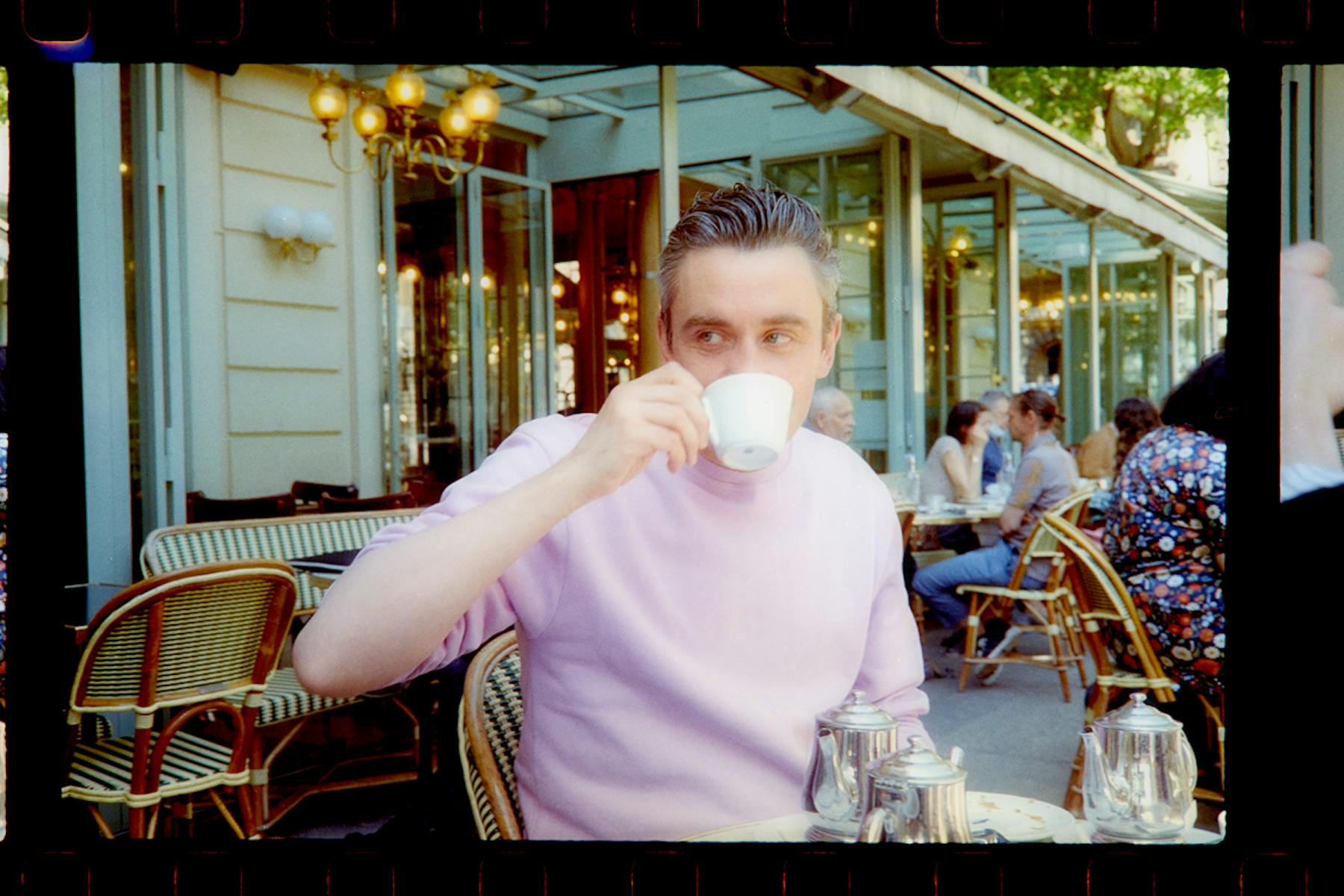
So euphoria is often associated with a kind of melancholy?
In our professions, I call it the “baby blues”. The come down... The emotional elevator – which I can experience at several points in the very same day.
During your creative process?
We can compare it to an athlete at the end of the race, or an actor finishing a film. You feel a kind of flaming out, a total flaming out. The advantage in the world of fashion is that the seasons overlap. In general, when I’ve finished one collection I’ve already started the next. So the “baby blues” doesn’t last long .
It’s a flux of emotions everyday…
You don’t stop. You maintain the rhythm. Ours is one of the rare professions where you have to stick to a very strict calendar. You have to be ready on a given day at a given time. You don’t have the luxury of taking your time, nor the right to do so. Nor do you have the option of being early. There’s no point in any case because you’re reliant on the calendars of other people. I only allow myself a moment of respite when the collection is finished but there are many people who do things differently. I think there are as many ways of doing this job as there are people doing it.
Is it when you put the final touches to your work that you feel the most intense euphoria?
No, it isn’t then. It’s when I find something I didn’t know I was looking for. When I touch a nerve that I didn’t even know existed. There’s something mystical in that, of the nature of faith.
In other words, as if something came to you without you expecting it?
For me, it’s something you have to work for… It’s a bit like making your brain work. I spend my time allowing myself to be enveloped in images, smells, sounds, which I will use in the future, near or distant. I know that one day I’ll make use of them. In my creative process, I let the teams suggest anything that they really want. And then, I go with it, without thinking at all. I don’t say to myself, “do I like it or not?” It’s my head and my hands which decide. It’s very spontaneous. I look at the documents and the images which appear and that’s how I create a creative framework. Then, I ask myself questions about the kind of woman I want to dress: Who is she? What does she do? What’s her situation? That gives me the tone, the perfume of colours and the volumes. I really need to think about the woman who will wear my clothes.
You inject emotion.
Yes, it’s very linked to the human. Then I start to draw.
And there are things which you can’t explain.
One thing follows another; I don’t know how to explain it.
Does this conjunction of elements happen at a precise moment in your creative process?
Often after I think I’ve finished. Often I say to myself, “there we go, that’s it!” but not because I decided upon it. Euphoria appears at a point beyond mastery, when it’s almost divine! Suddenly, there’s a kind of ray of light which bursts forth, which illuminates all of the work, but that’s not the moment when I’ve finished or when we present the collection. As I was saying, it’s the moment when I know that I have found something more than what I was seeking. I only manage to accomplish my task when I am surprised by myself. It becomes euphoric when things come to light clearly. When I see the things that I have made as if I had just discovered them. There are moments when it has almost made me ill.
In what sense?
Crazy butterflies in my stomach. Sick with happiness. It makes me want to dance and to yell. It’s not systematic, of course. The ray of light, however, happens every time. I am lucky enough to have always presented things which really inspired me. I am diligent in my work because I think of it as real work. I return to things a great deal. I need it to be legible, polished. But it’s never tiresome – I love doing it.
It’s like writing: redrafting, deleting, reinserting, finding the right word…
Yes and even if it’s laborious, it’s worth getting out of bed for. To have these moments of rare happiness, when it just pours out of you. Then you feel alive, really alive! And you want to shake people who don’t understand even though it’s so obvious for you. It’s as clear as water.
We want other people to be as receptive to this feeling...
Yes, you want them to join the dance. Another moment of euphoria in my work is when the clothes are not yet made but everything’s in hand, I know that I’ve got all the elements that I need. I know that I don’t need any more pieces, that if I were to add something it would be superfluous; it would be too much. And then, after that, I cross through a zone which I call the eye of the storm. I wait. I wait for the clothes to be made. I don’t really like that period.
That’s the moment you mentioned which comes after the turbulence of euphoria?
Yes, waiting is difficult. But I have a new kind of euphoria when I show the pieces to Benoit Bethume with whom I work in putting together the looks. He is very brilliant. I ask him to manipulate the collection without me seeing what he’s doing. In fact, I give it to him.
It’s a very close relationship?
He knows me off by heart. He knows me even better than I do, I sometimes think. We’ve known each other for 20 years. He will take my work to the next level. Sometimes he arrives with the silhouettes and we get on the plane. Literally.
We’re excited like little kids, not because we’re proud but because we’re happy.
Euphoria is stronger, therefore, euphoria is stronger when it’s shared?
You feel like you’re speaking a language which no one else understands – and that’s extraordinary. When euphoria is shared, it’s magic. That’s why I find it hard to travel alone. When I find myself in front of something very beautiful, I have to experience it with someone. In fact, for me, euphoria is like an electric charge, and I need to pass it on. Euphoria is something you work on, it’s like a spark, you have to strike a match.
You have to condition yourself for it, to some extent?
At any rate, for me, it’s not about gazing into the sky. It’s testing, and searching.
It’s a bit like being a chef, who needs to taste things to find the right flavour.
And then you have to work at it. I think there are people who have maybe never known euphoria and it doesn't matter because it’s not something you need.
It’s a plus ?
Yes, a plus. I’ve already thought about changing profession or re-training. I like fashion but it’s not my life. The only thing I know I would be totally nostalgic about, however, are these encounters with euphoria.
That exact sensation.
Of course because it’s something physical. The closest thing to it is the feeling of love. In other words, it would be another way of exteriorizing passion.
Have you ever had a feeling of ecstasy in front of a work of art?
Yes, certainly, but in terms of works of art, there are many other contingent factors to consider. I am completely blown away by the works of Lucien Freud or Francis Bacon, for example, but it depends on the context. The way it’s hung, the light, how others are juxtaposed alongside it, all of that can displease me.
Literature is probably more conducive to that because you can create your own context from the words. I have often felt it with scenery.
Landscapes?
When nature has the upper hand over man. For example – this is going to sound silly and I’m sorry – but I was in tears and shaking when I woke up at Machu Picchu in Peru, or in the Tanzanian savannah. There it seems like you’re on another planet. Euphoria, it’s a higher self.
And you were talking about words just now – are you a keen reader?
I read a bit of everything but I am more a loyal reader than an assiduous one. When I have read everything by an author, I find it really hard to start over with a new one.
You’re disappointed when it ends?
Yes, it’s very hard. I felt that with Stefan Zweig, for example.
That’s the flip side of euphoria we were talking about…
Precisely. It’s just like a child who wants to keep being spun round over and over again...
The dark side of euphoria.
It’s a form of depression, isn’t it? Up till now we’ve only been talking about gentle euphoria, but there’s also an addictive euphoria… And with the flipside that entails.
The colours of Patou’s winter collection are extremely intense. The collection is flamboyant with forms that bring to mind flowers in bloom. How did you develop this very flashy range of colours?
It was a reaction to the surrounding temperature. In our profession we have the opportunity to change our landscape a little bit, without having to find solutions.
Everything was grey, everything was dark, we had lived through an interminable winter with everyone dressed in grey. I wanted to propose a festival of colours.
But I don’t like things to be gratuitous or anecdotal. The day I start doing something just for the sake of doing something is the day I stop. In reality, I didn’t choose the first colours of the collection, they chose me. It’s almost metaphysical.
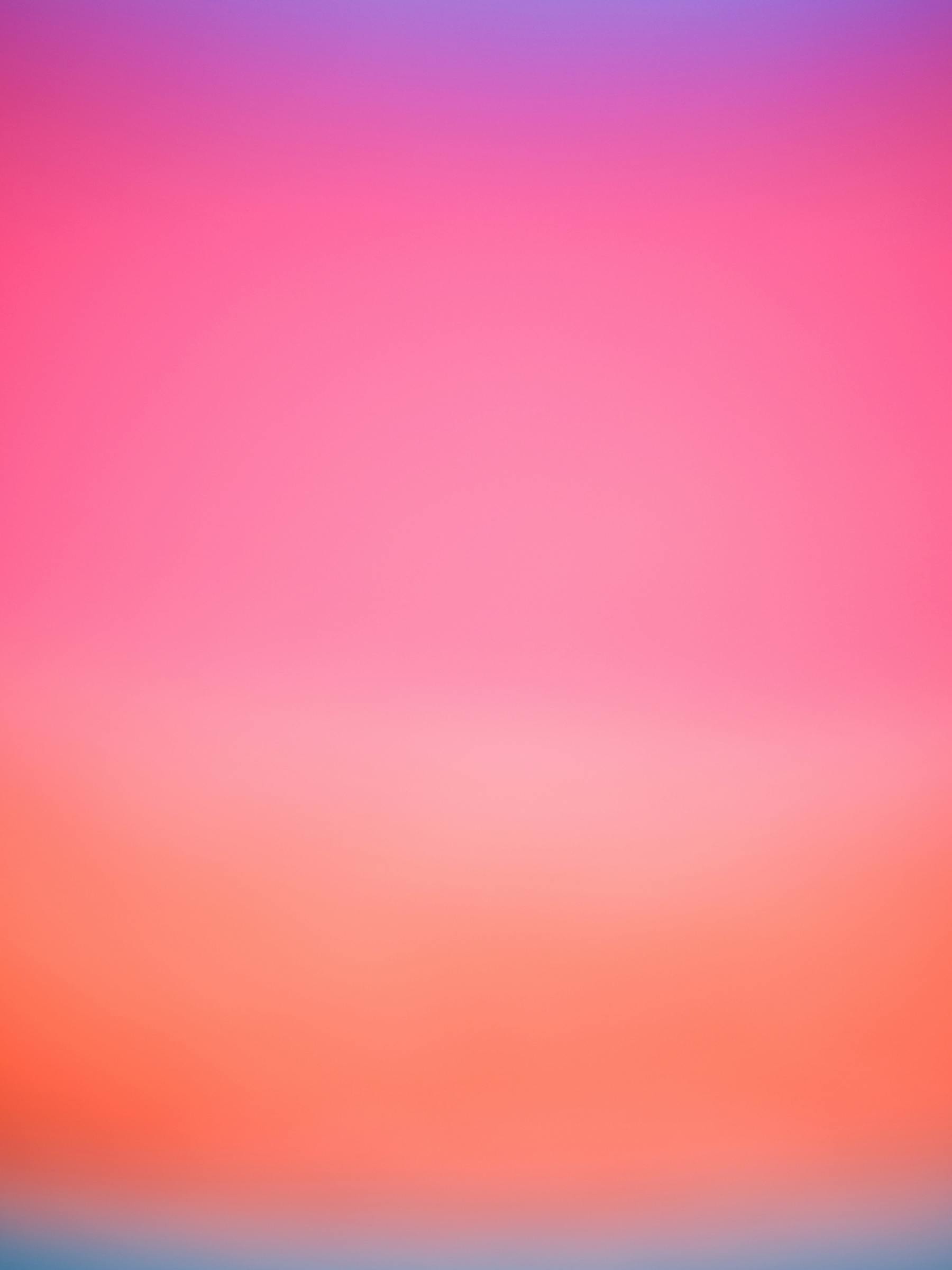
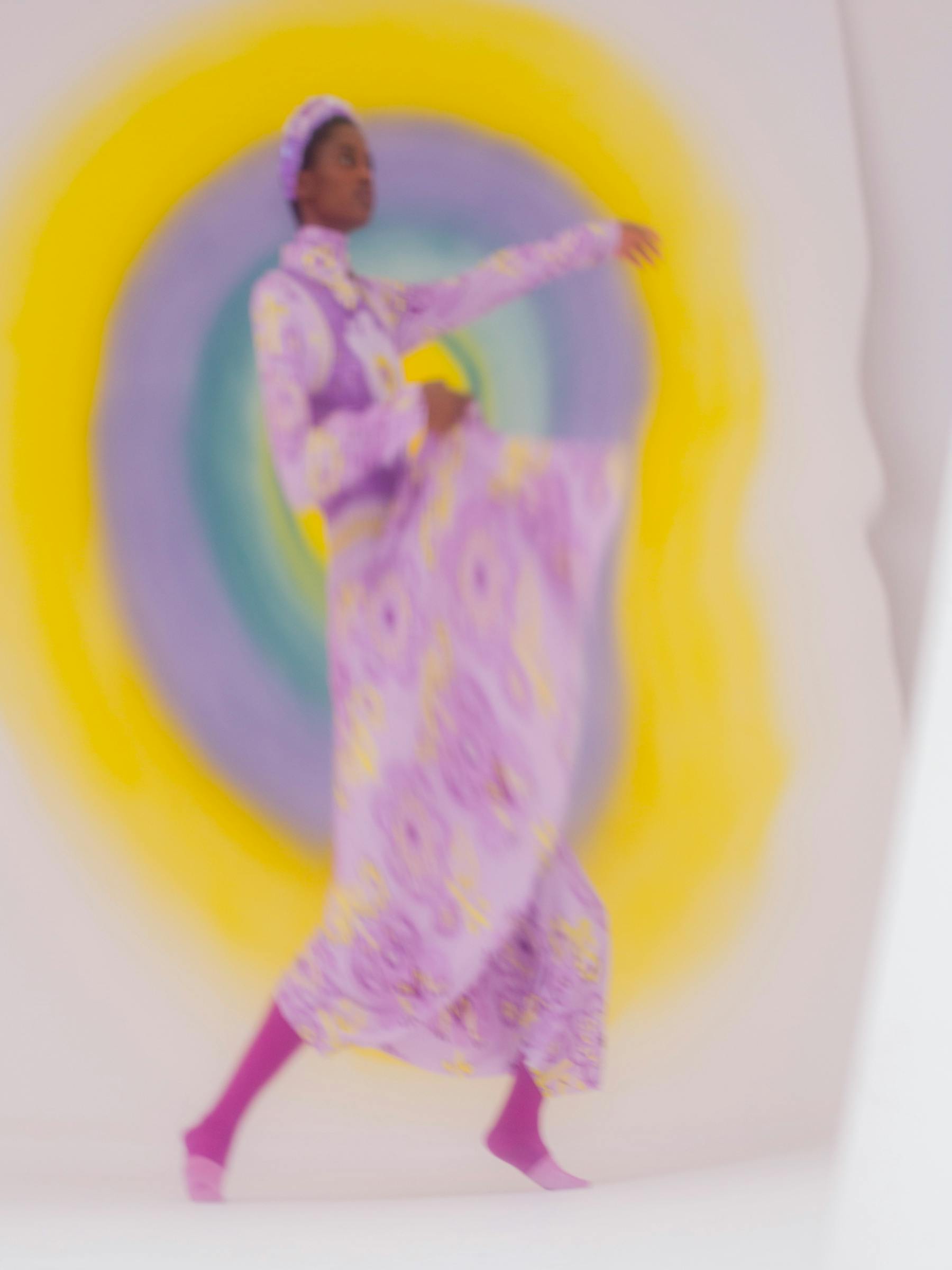
They come to you?
They come when I’m playing around with things and then they say: “I want to stay here,” so I listen to them! “You want to stay there? Okay, there you stay.” And afterwards, it’s like a family photo, the colours interacting: what do they say together? The Paul Rousteau visuals which you have chosen can certainly evoke euphoria, metamorphosis, movement, trance… The moment I picked up my pencil to draw this collection I said to the team, we’re going to work with Paul Rousteau!
What appeals to you in his work?
His images are dreams, reveries. For me, there is something fundamentally artistic in them because I see them as paintings. There is almost a subconscious dimension, without any special effects or manipulation. I am fascinated when the everyday becomes extraordinary. With Paul, it was the moment of letting go of the collection. It was the first time I did that, I said to Paul: “do what you want.”
And it was great. I spent the day sitting on a stool with my arms crossed watching him work and loving what I was seeing. He did what he wanted. Seeing him interact with the collection, I had goosebumps.
He embraced your work in a certain way?
What was really satisfying was that he took pleasure in using my work as a kind of nourishment. And transforming it so that I could rediscover it.
You gave him the raw materials, basically.
Totally, and he brought the soul. Even if there was a lot of soul in the raw materials because we put a lot of ourselves into it.
Heart on sleeve.
You know, for example, when I’m doing fittings, it’s funny, but I never say: “that dress is too short”. I say, “I am too short.” I realised that, it’s really weird. “I’m too cold, I am too short, etc.”
It’s a transfiguration!
I am completely possessed by the spirit of a skirt! It’s ultra intense. I come back home in the evening and I’m exhausted.
I get the impression that you push yourself as far as possible.
Yes, I throw my everything into it. Sometimes people look at me and seem to be saying, “you’re really excited about this, aren’t you?” But to wear the thing, you have to… (he makes a grand gesture and a little exclamation). At the end of the collection, I feel like I’ve completed a biathlon, truly. And yet, it’s euphoric.
The effort gives you adrenaline. Athletes talk about that, when you run, you’re doping yourself. And well I think in our professions it’s the same thing.
You were talking just now about training.
It’s like a machine. Adrenaline creates adrenaline.
Is the stimulation also collective?
When you’re an artistic director you have to be the motor, with all the responsibility that entails. You’re the leader.
From a societal point of view, is there something anachronistic about euphoria in these dystopian times?
On the contrary, euphoria is fundamental, especially in the post-pandemic context. I think we are all on the lookout for unique experiences. But euphoria can reside in very simple things. I’m not saying that we all have to take drugs on the roof of a building… Look, we were meant to do this interview in an office and we’re sitting outside in front of a cafe in the sun – for me that’s a mini-euphoria. But the sun can be replaced by a cloud in a single second.
With the click of a finger...
With experience, you can start to tame euphoria but not master it. I know that if I work at it, whatever happens it will come.
